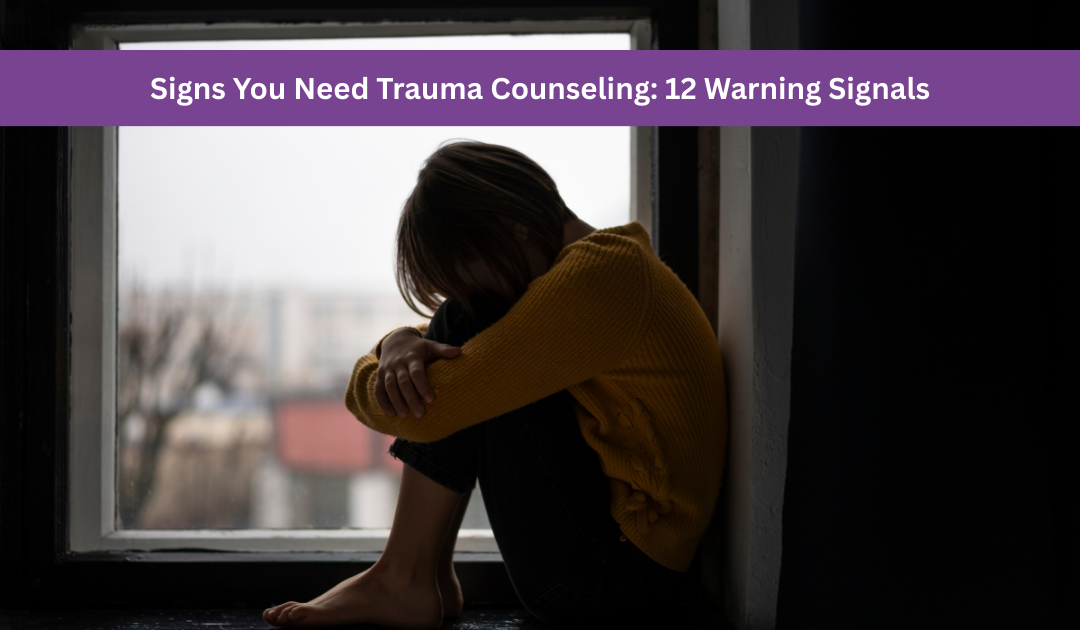Sometimes life hits harder than we expect. You try to stay strong, keep smiling, and tell yourself it’s fine. But inside, things feel heavy. That’s when mental health counseling makes a real difference. It’s not only for someone who’s broken down. It’s for anyone who wants to feel balanced again. Talking to a counselor is like opening a window in a room that’s been closed for too long. Fresh air comes in. You start to breathe better. You start to think clearer.
Did You Know? How many people wait until they reach a breaking point before asking for help? Most do. But healing works best when you don’t wait that long.
Why mental health counseling matters
When your mind feels heavy, everything around you starts to feel harder. You might snap at people, lose focus, or pull away from things you love. Counseling helps you make sense of what’s happening inside. It’s not about being “broken.” It’s about learning how to handle what’s hard and build peace again.
What counseling really is
Counseling is simple. You talk, someone listens. But it’s more than that. A good counselor helps you see patterns in your thoughts and feelings. They don’t fix you; they guide you to fix yourself. It’s about small steps that make daily life easier.
Different Types of Counseling Programs
There isn’t one way to heal. People need different things. That’s why there are different types of programs:
- Individual therapy: If you want to talk one-on-one.
- Group sessions: If you like learning from others who understand what you feel.
- Couples therapy: When love starts to hurt more than it helps.
- Family counseling : To fix broken communication at home.
- IOP (Intensive Outpatient Programs): If you need more care but don’t want full hospitalization.
Each one helps in its own way. The right one depends on what you need right now.
What You Get Out of Counseling
People who go to counseling often say one simple thing — “I feel lighter.”
Therapy helps you:
- Handle anxiety and daily stress.
- Sleep better.
- Talk more openly with people you care about.
- Feel confident about small things again.
- Stop carrying guilt and pain alone.
The change isn’t instant, but it happens. Slowly, life starts to feel normal again.
Finding the Right Program
Don’t rush it. The first counselor you meet might not feel right — and that’s okay. You need someone who listens in a way that makes you feel safe. Ask about their training and experience. Some use CBT (Cognitive Behavioral Therapy), some focus on talk therapy or mindfulness. Try one session. You’ll know if it feels right.
What Happens in a Session
You walk in. You sit down. You talk. That’s it.
You share what’s been bothering you. Sometimes you cry. Sometimes you laugh. Sometimes you sit in silence. It’s all fine. The counselor might give you small exercises — maybe journaling, breathing, or simple ways to handle a tough moment. Over time, you notice small changes in how you react and think.
Cost and Access
Therapy doesn’t always have to be expensive. There are free options in community centers. Many companies include it in health plans. And online therapy is everywhere now — you can even talk to someone from your room. Ask about sliding-scale fees if you’re worried about money. Help is available if you ask.
When It’s Time to Seek Help
You don’t need to wait until everything breaks. If you feel off for weeks, or small things make you cry or angry, it’s time.
Signs to watch for:
- You keep feeling tired even after resting.
- You can’t focus on work.
- You avoid calls or texts.
- You feel nothing makes sense anymore.
These are not small things. They’re signs your mind is asking for help.
Support from Family and Friends
Having someone who listens helps more than advice ever could. If someone close to you is in therapy, be patient. Don’t rush them to feel “better.” Healing takes time. Small gestures like checking in or spending quiet time together mean more than big words.
Did You Know? Even a few sessions of therapy can improve sleep and focus? It’s because talking reduces mental clutter and calms your nervous system.
What a Good Program Should Have
- Before joining, make sure the program offers:
- Licensed and trained professionals.
- Respect for your privacy.
- Personalized care, not a one-size-fits-all plan.
- Flexible hours or online sessions if needed.
- If a place feels pushy or cold, walk away. The right program will make you feel seen and safe.
How to Start
Take one small step. Write down what’s been bothering you. Then search for a counselor nearby or online. Call, ask about their sessions, and see if they fit your comfort. You don’t have to have the perfect words — “I think I need to talk to someone” is enough. That’s how healing starts.
Why It Matters
We live in a fast, noisy world. It’s easy to forget to check how you feel. Counseling slows things down. It gives your mind space to rest and reset. You start handling life better. You react less. You breathe more. That’s the real gift of therapy.
Call today to explore programs that fit your needs.
FAQs
- What happens in counseling?
You talk with a trained person who listens and helps you understand what’s going on inside your mind. They don’t judge or tell you what to do. They guide you to find your own answers.
- How long does therapy take to work?
It’s different for everyone. Some people feel better after a few sessions. Others take months to feel steady again. Healing takes time, but small changes start early.
- Is everything I say kept private?
Yes. What you share stays between you and your counselor. Privacy is a core rule in therapy unless there’s a risk of harm or danger.
- Can I start counseling even if I don’t know what’s wrong?
Yes. You don’t need to have clear answers. Many people start therapy feeling confused. Talking helps you figure out what you’re feeling and why.
- What if I don’t feel comfortable with my counselor?
That’s okay. You have every right to change. Finding the right counselor is like finding the right doctor. It should feel safe and respectful.




